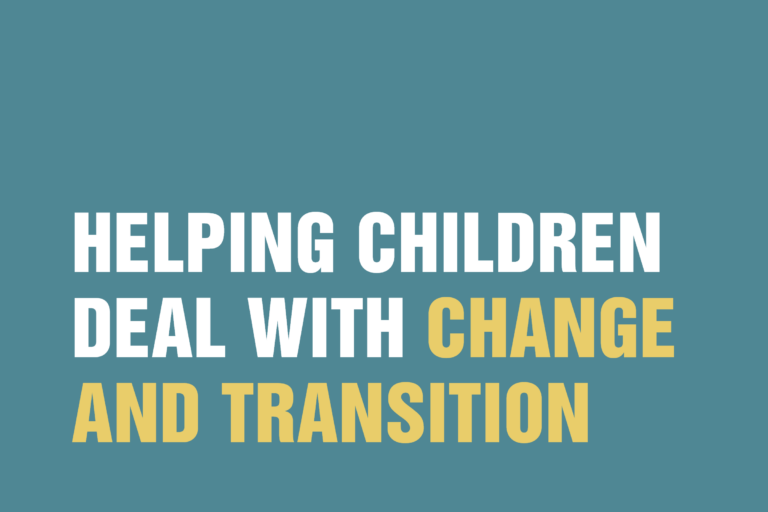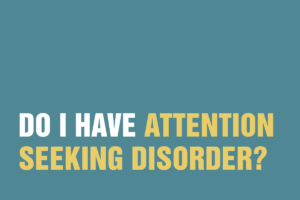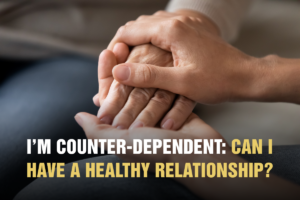For most of us, an element of predictability in life brings a sense of confidence and security, and this is especially true for children. It helps them know what’s on the horizon as they navigate life. However, changes and transitions are inevitable, and they can present challenges that all children will sooner or later have to try and deal with.
Change can come in many forms. There are the major transitions of life such as a bereavement, a divorce or separation, a new arrival and other adjustments in the family, or a change of location or school. In addition, change can manifest in things which adults may perceive as relatively simple or minor, such as new routines, food, or clothes. Children need to feel safe and secure in order to best face these changes, and as a parent or caregiver there are ways you can help.
Here at The Awareness Centre, our expert child and adolescent counselling services help young people in dealing with a wide range of issues and concerns they may face, and we’re well placed to provide constructive advice and support to parents searching for the best ways to help their child. In this guide, we’ve put together six techniques to help you, help your child, deal with change and transition.
How to Help Children Face Changes
Change is a part of life, and a child will have to face many transitions as they grow. Though change can sometimes have a significant impact on a child’s mental health, resilience is a key emotional resource to help them deal with the alterations that can occur. Read on for our 6 clinically-backed methods for helping children deal with change.
- Give them time to mentally prepare
Of course, some transitions such as a sudden illness are impossible to see coming, and an element of shock is unavoidable. But in many cases, you can familiarise the child with the idea of what’s happening beforehand. Mental processing begins with awareness, so give the child some advanced warning and time to prepare, where possible. This will help them accept the transition and avoid the sense of having been blindsided.
This may mean taking a look around a new neighbourhood together, meeting a new teacher, explaining that a family pet is sick, or showing your child their new room. Making your child aware of the changes that are happening facilitates their ability to mentally acclimatise.
- Understand that it takes time
The vast majority of people – both children and adults – need time to accept change, and cannot adapt instantly. This is particularly true during periods of significant upheaval. Try to be patient with your child as they come to terms with the transition and understand that it’ll probably take some time for them to adjust.
Often, a change can bring about a period of grief – even with a seemingly ‘positive’ change. You may find that your child bursts into tears upon the arrival of a new pet, for example. Make an effort to understand those emotions and try to help your child focus on the silver linings and the positives.
When facing a change, it’s sometimes normal for a child to ‘regress’ to earlier behaviours. A child who has been used to taking a nap after lunch may periodically nod off at their new school, for instance. Rather than viewing this as ‘a step backwards’, accept that regression can be part of the process of adapting.
- Maintain routines
Moments of consistency are important anchors in a child’s life; they provide stability and create the feeling of security. Consistency comes from routines and, when those routines are altered, children are opened to the potential for mental health issues. The Health Foundation highlighted “disruption to home and school routines during the pandemic” as one of the key reasons why one in six people aged 6-16 are dealing with a probable mental health condition.
As far as possible, try to keep routines the same while you and your child navigate a transition. Bedtime routines and mealtimes are two areas where children benefit greatly from knowing what to expect.
Try not to initiate extra changes when they are unnecessary. For example, don’t stop using your child’s ‘special’ knife and fork when you move house. This can pile stress and anxiety onto a situation which is already turbulent.
- Give your child some control
Feeling powerless, or like things are happening to them, can be a major cause of anxiety for children. In order to prevent this, it can be useful to give your child some choice over the changes that occur, in an age-appropriate way.
This helps them to feel like they are participating in the change, and that their thoughts and opinions matter. If you are separating from your partner and your child will have a new bedroom, for example, let them choose the colour of the walls. Or if your family is preparing for the arrival of a baby, allow your child to have some input into the naming of their new brother or sister.
When it’s responsible to do so, consider giving your child tasks to help carry out the change – moving boxes into a new home, for instance. It will give them the opportunity to feel helpful, and part of the decision-making process. However, be careful not to swamp your child with constant decisions and responsibility, as this can quickly lead to anxiety.
- Talk about the change
It’s perfectly natural for children to ask a lot of questions, and you may find your child repeating the same question several times. This is a method of building resilience. Answer their questions patiently, and try to keep your communication clear and positive. It’s important to communicate effectively and honestly with your child during a time of change.
You may find that they have some concerns or worries. Allow them to voice what they’re feeling – talk through things, and don’t shelter your child from their emotions. This will provide validation.
It can be helpful to label an emotion, as this makes worries or concerns seem less daunting for a child. For example, you could say things like, “it’s OK to feel a little bit scared of big school. Don’t worry, everyone gets nervous before the first day. Soon you’re going to have lots of new friends and do some really cool stuff together!”
You may also talk about other changes the child has dealt with in the past, to help them face a new one. Joining a sports team or saying goodbye to a pet, for instance. Remind them of what happened, and how they coped. Try to emphasise the good things that came from it, how they felt during the change, and what they learned.
- Spend quality time together
As a parent or caregiver, you are one of the most prominent sources of constancy in your child’s life, and your bond with them is invaluable in providing emotional support. You may be facing your own set of worries or stress, but make sure you take the time to nurture that connection.
Go outside together, watch a well-loved film, make some art, or play games. These are all great ways to de-stress; play can be good for adults, too! Quality time lets your child know that, whatever changes are going on, their relationship with you isn’t going anywhere.
When Your Child Needs Extra Help
Hopefully, the strategies outlined in this guide will help you assist your child in facing transition, and lay the foundations for building up their resilience to change. As we’ve discussed, life changes can be difficult for children to manage, but by using these mental health techniques you can show your child that ‘new’ doesn’t have to mean ‘scary’.
Sometimes though, when confronted with dramatic life changes, children can feel like their world has been turned upside-down, and that their life is out of control. If your child needs some extra help in dealing with the impact of change, professional clinical support is available.
At The Awareness Centre, we facilitate the free expression of feelings and use non-directive therapy to help bolster children’s resilience to change. You can book an appointment at one of our clinics today, or get in touch now to hear more about the various types of therapy available.







